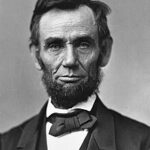President Abraham Lincoln faced unprecedented challenges during the Civil War. His decision to establish Lincoln military tribunals for civilian prosecution remains highly controversial. These military courts tried civilians for disloyalty and sedition, even where civil courts operated normally.
The Constitutional Crisis
Lincoln suspended habeas corpus and authorized military arrests of civilians. ⚠️ This decision bypassed traditional due process protections guaranteed by the Constitution. Military commanders could arrest suspected Confederate sympathizers without warrants. The tribunals operated with relaxed evidence rules and limited defense rights.
Targets of Military Justice
The tribunals prosecuted newspaper editors, politicians, and ordinary citizens. 📊 Over 13,000 civilians faced military detention during the war. Many cases involved criticism of Lincoln’s policies rather than actual treason. The most famous case involved Clement Vallandigham, a Democratic congressman from Ohio.
Legal Justification Attempts
Lincoln argued that wartime necessities justified extraordinary measures. He claimed constitutional powers as commander-in-chief superseded normal legal procedures. His administration insisted that rebellion created conditions requiring military law.
Impact:
Lincoln military tribunals created lasting constitutional precedents with far-reaching consequences. The decision fundamentally altered the balance between civil liberties and national security during crises.
Immediate Political Backlash
🔥 Democrats denounced Lincoln as a dictator violating constitutional rights. Opposition newspapers compared him to European tyrants. Several state legislatures passed resolutions condemning military tribunals. The controversy energized Lincoln’s political opponents heading into the 1864 election.
Supreme Court Response
The Supreme Court eventually addressed these issues in Ex parte Milligan (1866). 📉 The Court ruled that military tribunals could not try civilians where civil courts functioned. This decision came after the war ended, limiting its immediate impact. However, it established important precedents for future constitutional crises.
Long-term Constitutional Legacy
🌍 The tribunals set precedents for wartime executive power expansion. Future presidents cited Lincoln’s actions to justify similar measures. World War I and II saw renewed debates about military justice for civilians. Modern terrorism cases continue referencing these Civil War precedents. The tension between security and liberty remains unresolved in American jurisprudence.
